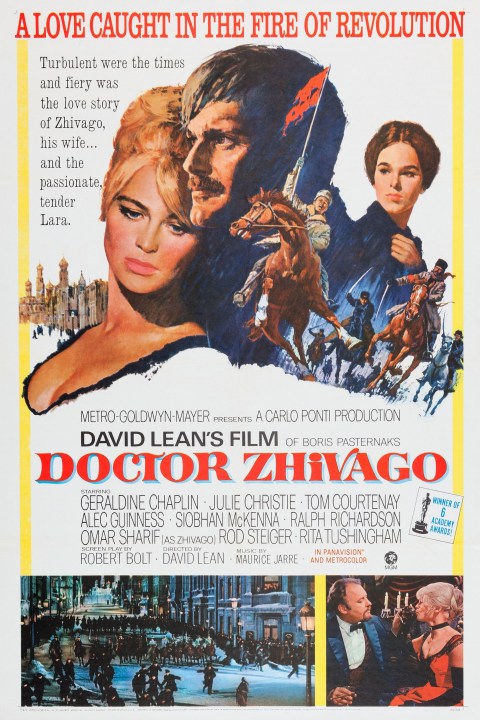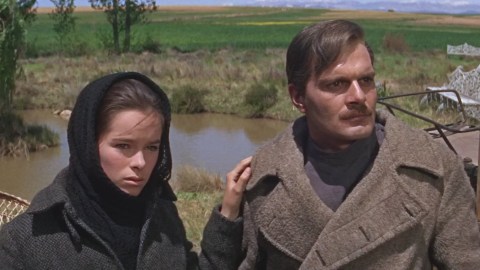17. 4. – 19. 4. 2026
Doctor Zhivago

 Original title: Doctor Zhivago
Original title: Doctor ZhivagoDirector: David Lean
Production: 1965, UK / USA / Italy
Length: 197 min. + intermission
Screened:
70mm film seminar 2007: 70mm 2.2:1, Colours faded, MG, Spoken language: English, Subtitles: CzechKRRR! 2025: 70mm 2.2:1, Colours faded, MG 6ch, Spoken language: English, Subtitles: Czech, Swedish
Annotation for KRRR! 2025
Can a film be extraordinarily beautiful and at the same time almost overwhelmingly sad? That is a question that legendary director David Lean was able to answer in the affirmative in the mid-1960s. He decided to adapt the acclaimed novel Doctor Zhivago by Russian writer Boris Pasternak for the big screen. Given that the book is around 600 pages long, the director naturally had to make compromises and could not adapt the dense classic of world literature literally.
We follow primarily the love story of Zhivago (Omar Sharif) and Lara (Julie Christie), narrated by the voice of Zhivago's "conscious" brother Yevgraf (Alec Guinness). He belongs to the secret police, and he is supposed to go after dangerous enlightened people, which undoubtedly includes the poet Zhivago, with the help of an increasingly powerful apparatus. However, Yevgraf does not want to, although he would much prefer it if his brother had seen through it, just as he had adapted to the situation and not provoked with “dangerous” poetry in which he showed off his innermost feelings.
David Lean and his protagonist in a doctor’s coat do not actually have exaggerated ambitions to judge history and sue at all costs. Zhivago himself certainly has reservations about the regime, but he still sees equality of people and socialism as the path to a better tomorrow. In relation to what Lean does have, on the contrary, is to penetrate the hearts of his heroes and, just as in The Strongest Tie (1945), to show that even marital infidelity can be viewed with understanding.
For fans of the perfectionist director, it will come as no surprise that Doctor Zhivago is a demonstration of cinematic grandeur after The Bridge on the River Kwai (1957) and Lawrence of Arabia (1962). Whether we are talking about the opening scene on the dam or the scene in the train station, Lean serves up stunning images as if by chance. And while this is understandable, it is with difficulty that we believe while watching the film that it was not shot in the Soviet Union; the filmmakers built Moscow in Spain and used Finland and Canada for numerous winter scenes.
Unfortunately, we will never know what Pasternak himself would have said about the adaptation of his work. Although he won the Nobel Prize for Literature in 1958, he was forced to publicly refuse it under pressure from the Politburo and its extended arm, the KGB. He died two years later, five years before the film’s premiere. But he would probably agree that history tends to repeat itself. Looking at the persecution of the intelligentsia in Russia and the little people who are destroying the lives of millions through a reprehensible doctrine, Doctor Zhivago can be seen as relevant today as it was sixty years ago.